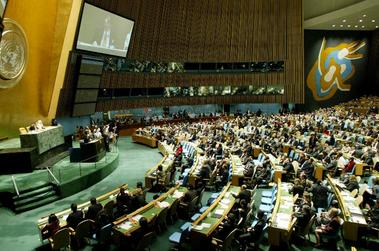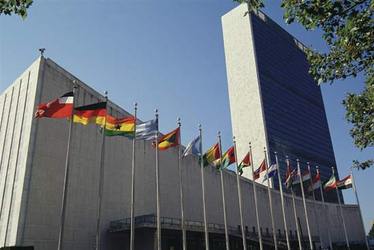Is UN peacekeeping seriously flawed?
The United Nations peacekeeping process is seriously flawed, because it gives certain countries the opportunities to make self-interested decisions to benefit themselves rather than the world, and it's execution of peacekeeping missions is usually ineffective and in certain circumstances it even worsens the situation for the country that was supposed to be aided.
The United Nations
When it began in 1945, the United Nations was composed of fifty-one nations who pledged to continue fighting against the Axis Powers, Italy, Japan, and Germany . Under its charter, the UN's main job is to keep world peace. The decisions on how to keep world peace are determined by the security council, a vital organ to the United Nations made up of 15 members. Ten of these members are non-permanent elected members, or rotating members, chosen from the 187 non-permanent member states, with two year terms. The other five members are known as permanent members (United States, China, United Kingdom, France, Russia) and they always hold their seat within the security council. The five permanent members also have the power to veto any proposal they wish, with no questions asked. When there is a complaint about threatened peace the UN first gives the two parties time to work out their differences, but if the problem persists the council will begin to put forth ideas on how to end the conflict. When a plan is brought forward there is a vote within the security council, but if one of the permanent members votes no, the course of action is not followed through, only when all five permanent members agree that it is necessary for the United Nations to take action does the mission begin. There are three types of interferences that the United Nations will use to stop a conflict: enforcement, economic sanction, or military force. The choice made by the Security Council depends on the dispute.
Enforcement
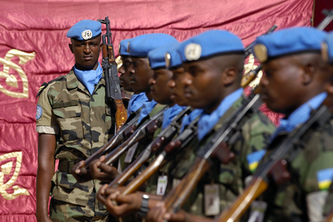
Enforcement is when the United Nations enforces certain laws or treaties. It is used to enforce that a nation upholds its side of a treaty, or the laws of human rights, and keeps peace.
Economic Sanctions
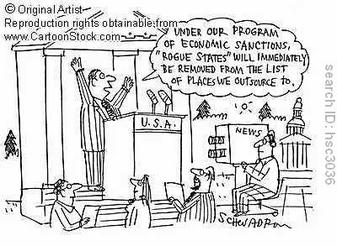
Economic Sanctions are when one country, or a group of countries, puts a trade penalty on another country. Economic Sanctions include tariffs, import or export quotas, or trade barriers (embargo).
Military Force
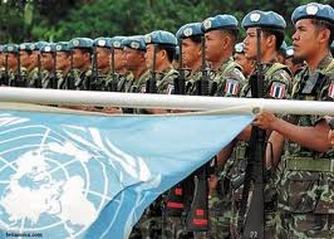
When the United Nations see that the situation in the country they wish to aid is dire, they apply military force. This is the action of using military troops to control the peace in a certain country, or using troops to aid a country in a war.
